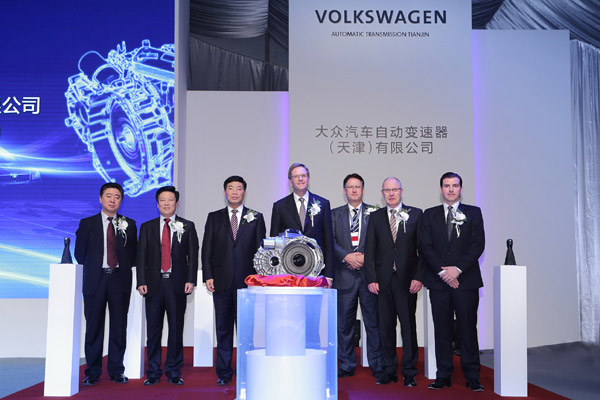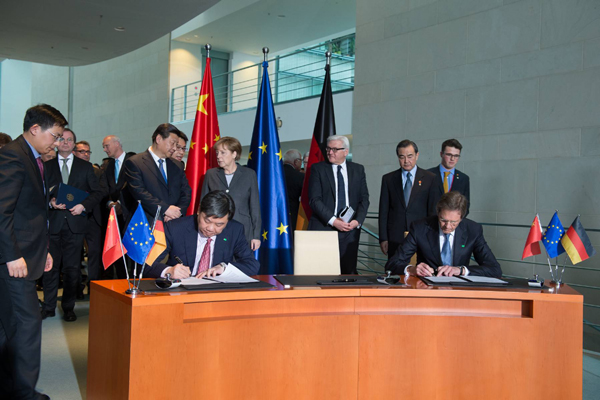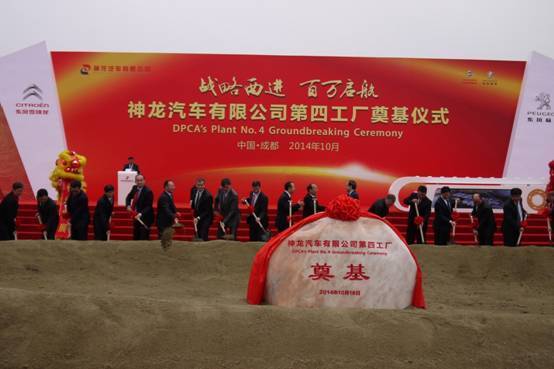DJS:
This is part of China's long term strategy to develop a trade based system that more closely resembles the German model. In order to bring as many of its citizens into the economic system within a reasonable period of time, they simply cannot detour from their trade first model. Having said that, the German model (higher end goods with a higher profit margin and typically less susceptible to recessions) is being embraced. That doesn't mean that China will end the low cost/margin manufacturing and exporting. It will likely be their primary thrust for a long time.
I intend to sit down one day to a lengthy and intensive study on the intent evident in the 5 year plans, that the Chinese government uses to implement their goals, versus the actual results, to try and discern how useful that planning has been.
At this point in time I can only offer a few general comments.
1. Clearly at a macro level, the post-Mao administrations have planned their moves very carefully. The State Owned Enterprises were turned into corporations, usually in such a way that were at least two competing enterprises. As an example, the old CAAC -Civil Aviation Administration of China (in Chinese - 中国民用航空局 - Zhōngguó Mínyòng Hángkōng Jú ) which controlled Aviation in China and operated passenger services was split up, and became the Administrative section plus three main airlines (Air China, China Eastern and China Southern - there were some others in the beginning) which were seen as regional hubs. They have competed with each other fairly successfully and today can be described as good airlines. On Sydney-China routes I've flown with Australia's Qantas, China Eastern and Air China. You really cant tell much difference between them from a quality viewpoint. (One thing - the Chinese airports are much better than Sydney's International airport - and they process arriving passengers faster - in my experience).
My guess is that the competitive element has forced the heirloom companies to get better or get out.
-------------------------------------
2. But there have been other factors. Generally, there seems to be an element of "have -a-go" in China. There is sufficient commercial freedom for individuals to start their own business and become wealthy.
----------------------------------
3. And, at the same time there is village based commerce, such as the well-known Huaxi village. Here's a peep inside that interesting village (now town) whose success has been based on a combination of socialism and tradition: http://www.businessinsider.com.au/huaxi-the-richest-village-in-china-2013-12?op=1#thats-not-the-only-weird-thing-about-china-25
and
https://www.youtube.com/watch?v=yru1C-RE7lc
------------------------------------
4. And, then there are some interesting trends. For example robotics:
http://www.ibtimes.com/china-now-has-30-industrial-robot-factories-could-double-robot-population-2017-1713813
An example of what's happening:
(Beijing) – Every day, two quality-control supervisors monitor four robots tirelessly assembling remote-control devices for home appliances at a Midea Group factory in Foshan, in the southern province of Guangdong.
The robots recently replaced 14 workers on the plant's assembly line for remote controls. And soon, according to Midea's Home Air Conditioner Division Deputy General Manager Wu Shoubao, more robots will arrive to replace the quality-control supervisors. Reference: http://english.caixin.com/2015-03-05/100788376.html
From DJS:
The educated workers can easily move into the higher tech/durable goods jobs, while the uneducated agrarians are likely targeted as replacements/backfills. We are likely to see factories re-located to the agrian areas, if it hasn't already started. They are building the infrastructure to make it occur.
I agree, particularly as the government's stated intention is not only to continue extending cities and building new cities, but to remodel the countryside into towns which will provide a full range of services. And, its not only industry that is interested in that move. Hi-tech firms are also considering the potential in such a move:
http://www.chinadaily.com.cn/regional/2015-03/04/content_19717651.htm
DJS: Not a bad model, actually. Their GDP is heavily reliant on exports; internal consumer consumption isn't high or stable enough to allow a spreading of the wealth, not yet at least.
It seems that the government is now (and, has been for a while) focusing on stimulating internal consumption. Seven years ago, I went to a lecture by a professor from a leading Shanghai university (he also served on some high level Government economics boards) he stated that the way forward could not on exports. Further, he stated that the government had no choice but to increase earnings. Nothing happens overnight in an economy the size of China's, but a few years later there was an increase in the lowest wage levels, as well as instructions in some areas for the lowest level of factories to find a new home, either overseas or in poorer provinces. There have now been reasonable wage increases for the last four years, and of course that's leading to the changes you've mentioned.
One thing I cannot yet get clear, is how many lower level Chinese owned factories have moved off-shore to areas with lower wages. I suspect there may be quite a large number. Why? first there is a large increase in overseas direct investment from China and second, there is the official policy of building a new Silk route and belt, which in practise seems to be an invitation by the Chinese government to nearby countries (The Phillipines, Vietnam Cambodia. Laos (Laos already has heavy Chinese investment) Myanmar, Sri Lanka Bangladash, Nepal, Pakistan, West Africa, Afghanistan and the other 'stans' including Kazakhstan, Mongolia and South Korea. I'm sure that North Korea has likely been invited, but as you can imagine such an opening may mean some difficulties for the present administration. It would also seem (to me) that India, Russia and Iran have had an offer, but may not be sure of what they want from this offer.
This is world planning on a scale never seen before. (I daresay, the Americans could've done it with the Monroe doctrine in the America's but possibly were mentally stuck with an older vision) If the Chinese succeed we will be living in a completely different world.
DJS: The Chinese leaders know quite well that an export driven GDP/economic model is problematic, but they have few other choices.
Maybe the saying about how to see a half full glass of water applies at this point.
DJS: All things considered, I give them an A- to this point. Real problems loom on the horizon, but I am pulling for them.
I support them also. The Chinese government has worked diligently to modernise China. The attempt to build a socialist economy and the tensions created by that wrong turn delayed things a bit. As did the money they felt forced to pour into their "third line (of defense)."
And, beside internal errors, there was the initial problems caused by American sanctions. Mao is blamed for China's last great famine, but of all the unknowable number of deaths, some must be attributed to American sanctions.
Of course, the government could only set goals and indicate the path to follow, the hardworking people of China must be lauded for much of the success they have achieved.
I first became intrigued by the China experience back about 1952 (I think) I was about 16 and interested in achieving a better world. Somehow, I heard of a film about China (re-constructs) in Sydney's China town and attended. It was all in Chinese and turned out to be organised by the Communist Youth League, and, ironically most of the Chinese attending were elderly. But that's what shocked me, after the film and talk (still in Chinese) there was a collection. At the time I was earning about 5 pounds (ten dollars) a week and these elderly Chinese who looked as if they had nothing were tossing 20 pound notes into the hat. I later realised I was seeing something significant. But events swept away my initial feelings of interest.
The Australian government introduced conscription (for the Korean war), and I realised I would be conscripted. As an idealist I was a pacifist and decided I would go to gaol instead. Then I heard that JW's wouldn't join the army either, and wanted to know more about them. The rest of my story will be much like everyone else's here.







